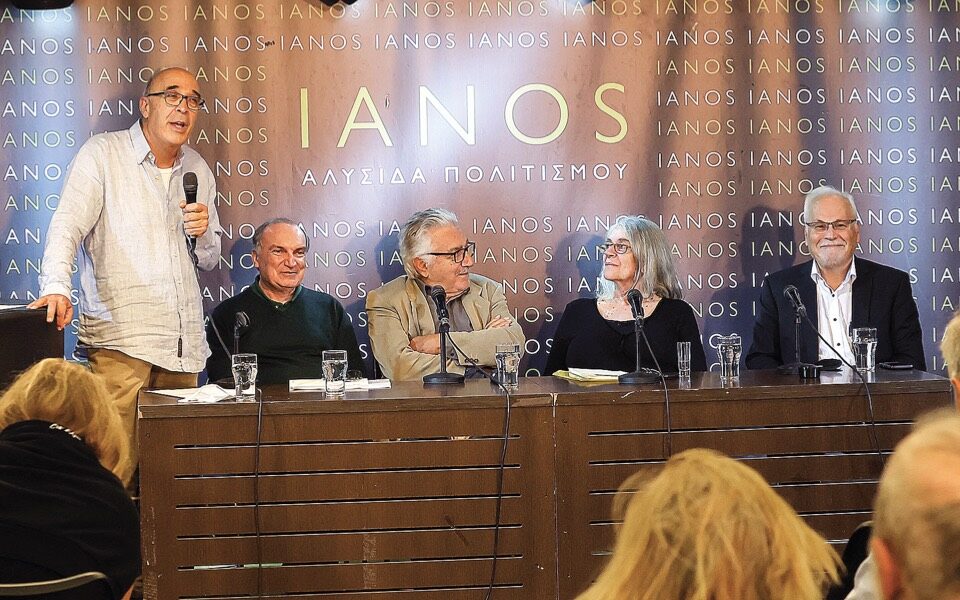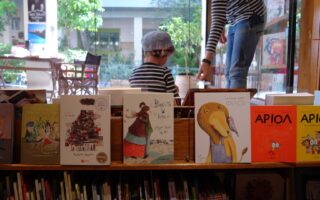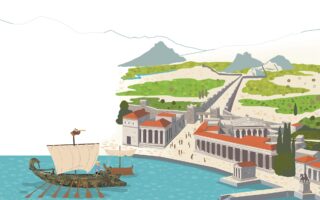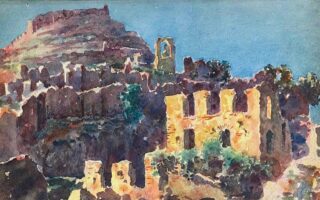The healing art of poetry from the pen of prominent doctor George Pavlakis

The mind plays funny tricks sometimes. The general public became acquainted with George Pavlakis, the top Greek doctor and medical researcher, from his live television appearances from the United States during the first few months of the Covid pandemic, as he calmly and scientifically sounded the alarm about ignoring the dangers of SARS-CoV-2 and rejecting the vaccines against the virus.
So when I saw him the other night at the Ianos bookstore on downtown Athens’ Stadiou Street talking about his new poetry collection, which was just published in Greece by Kastaniotis, it seemed odd, but also somehow moving that this man of science had the strength to shed the armor of expertise in his field and expose his innermost sensibilities and sensitives to the public and the sophists.
Pavlakis has been living in the United States for close on five decades, but his mind is always on Greece and more specifically these days on the events surrounding the November 17, 1973 Athens Polytechnic Uprising. As a medical student at the time, he was on the front line of the revolt, helping injured fellow students and seeing others expire in the brutal crackdown by the military. He chose the week of the uprising’s 50th anniversary deliberately to present his poetry collection “Perasmena Paramythia” (Bygone Fairytales), a symbolic title that expresses sentiments long held inside. It seems that for a doctor who spent so many hours of his life carrying out research, poetry offered an outlet, but it was not until now that he decided to publish any of his work.
Dozens of prominent figures who played a part in the uprising started flocking to Ianos well before the presentation was due to start. Former ministers Kostas Laliotis, Stefanos Tzoumakas and Anna Diamantopoulou also made an appearance, while writer Rhea Galanaki, poet Titos Patrikios and filmmaker Pantelis Voulgaris ended up sharing a table.
The panel of speakers was also touching to see. Pavlakis’ long-time friend, Ioanna Karystiani, held his hand for the entire time that he spoke about his interest in poetry. “I thought that the title of my presentation should be ‘Love you friend with his poems,’” quipped the prominent writer, going on to quote Tasos Leivaditis, who had said that having a heart is the greatest virtue man can have. “Pavlakis’ kindness, his concern for everyone who suffers, is pure poetry in my opinion,” she added.
The psychiatrist and translator Nikos Sideris, who was beside Pavlakis on the front lines of the 1973 student revolt, and Dinos Siotis, a fellow-poet and literary magazine publisher, also spoke about Pavlakis’ book.
Modest as always, the doctor-poet spoke last. “My book is not about the Polytechnic [Uprising], but it cannot ignore the accomplishments of our youth. It is a distillation of experiences and emotions, like a message in a bottle floating in the sea, destined for wherever,” he said.
And on a side note, just a handful of people wore a mask in the packed room, so it seems like they definitely viewed Pavlakis as a poet rather than a doctor, who would have probably told them off in different circumstances.





